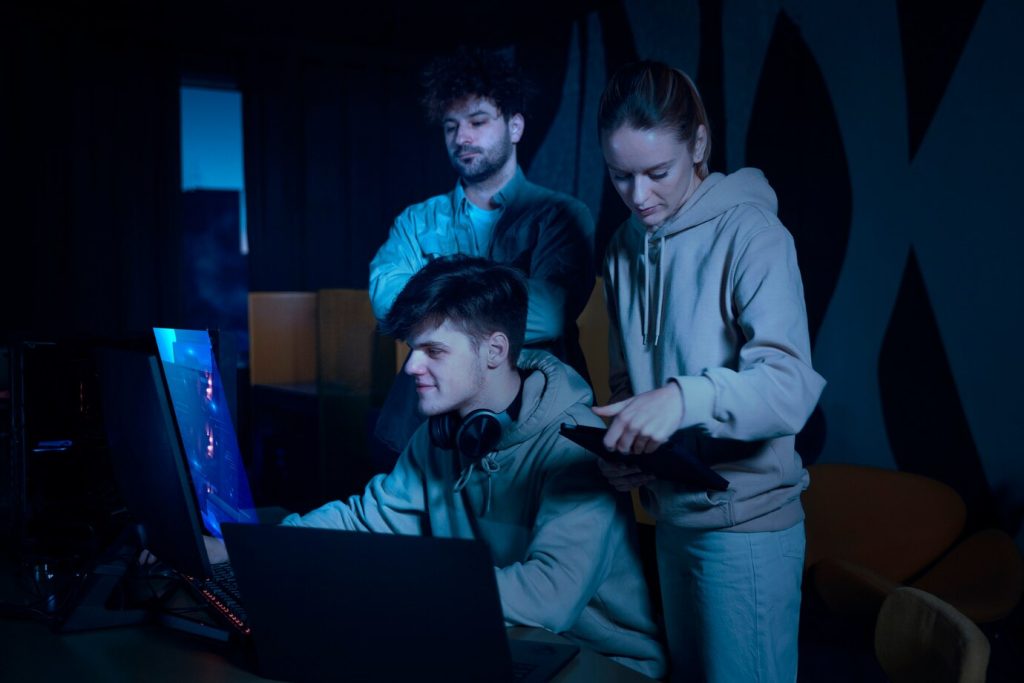The world of online gaming is a vibrant community, bringing together millions of players across the globe in virtual battlefields. Within this expansive universe, however, lurks a darker side—the realm of cheats, hacks, and exploits. In games like Call of Duty (COD), where skill and strategy are paramount, the use of hacks can tilt the balance unfairly, undermining the integrity of the gaming experience. In this comprehensive exploration, we delve deep into the world of COD hacks and online game cheats, uncovering their mechanics, impact, and the ongoing battle against them.
Understanding Hacks and Cheats
Hacks and cheats are unauthorized modifications to a game’s code or mechanics, designed to provide players with an unfair advantage over others. These can range from simple aimbots and wallhacks to more sophisticated exploits that manipulate game physics or bypass security measures. In the context of COD and other online games, cheats can give players enhanced aiming abilities, unlimited ammunition, or even make them invincible, fundamentally altering the gameplay experience.
The Appeal of Cheating
The allure of cheating in online games often stems from a desire for dominance or recognition. Some players seek to climb the ranks quickly or impress their peers with seemingly unbeatable skills. For others, cheating may provide a sense of rebellion against established rules or simply serve as a form of entertainment. However, the consequences of cheating extend far beyond individual satisfaction, impacting the entire gaming community.
Impact on Fair Play
The use of hacks and cheats undermines the principles of fair play and sportsmanship that are essential to the online gaming experience. When players resort to unfair tactics to gain an advantage, it creates an imbalanced playing field where skill and strategy take a backseat to exploitation. This not only diminishes the enjoyment of legitimate players but also erodes trust in the integrity of the game.
Economic Implications
Beyond the realm of gameplay, cheating can have significant economic implications for developers and publishers. In games with competitive elements or microtransactions, cheating can devalue in-game rewards and disrupt the delicate balance of virtual economies. Additionally, the resources invested in combating cheats and enforcing anti-cheat measures represent a substantial financial burden for game companies.
The Arms Race Against Cheating
In response to the pervasive threat of cheating, game developers and publishers have implemented various anti-cheat measures to safeguard their communities. These measures range from automated detection systems and server-side validation to manual moderation and player reporting mechanisms. However, the battle against cheats is an ongoing arms race, with cheat developers constantly innovating to evade detection and circumvent safeguards.
Community Vigilance
While developers play a crucial role in combating cheats, the responsibility for maintaining a fair and enjoyable gaming environment ultimately falls on the community itself. Players are encouraged to report suspicious behavior, adhere to fair play guidelines, and support initiatives aimed at promoting integrity within the gaming community. Through collective vigilance and cooperation, players can help stem the tide of cheating and preserve the integrity of their favorite games.
Conclusion
In the ever-evolving landscape of online gaming, the issue of cheats and hacks poses a formidable challenge that demands the collective effort of players, developers, and community members alike. At its core, gaming is not merely about skillful maneuvering within virtual environments; it is about fostering a sense of camaraderie, healthy competition, and mutual respect among participants. However, the proliferation of cheats undermines these fundamental principles, threatening to erode the very essence of the gaming experience.
As players, we bear a significant responsibility in preserving the integrity of the games we love. Beyond seeking personal gratification or fleeting victories, we must recognize that our actions reverberate throughout the entire gaming community. By embracing the values of fair play, sportsmanship, and integrity, we can contribute to a culture where everyone has an equal opportunity to succeed based on their abilities and dedication.
Remaining vigilant is paramount in the fight against cheats and hacks. It requires a keen eye for detecting suspicious behavior, whether it be an opponent exhibiting unnaturally precise aim or an abrupt surge in performance from an otherwise mediocre player. By reporting such anomalies through official channels provided by game developers, players can play a crucial role in identifying and rooting out cheaters from the community.
However, the burden of combating cheats does not fall solely on the shoulders of players. Game developers and publishers have a vested interest in maintaining the integrity of their products and fostering a positive gaming environment. To this end, they invest significant resources in developing and implementing anti-cheat measures, ranging from sophisticated detection algorithms to proactive monitoring systems.
Yet, the battle against cheats is far from straightforward. Cheat developers are adept at staying one step ahead, constantly refining their techniques to evade detection and bypass security measures. As such, the fight against cheats is an ongoing arms race, requiring continual innovation and adaptation from both developers and anti-cheat providers.
Community involvement is also crucial in supporting anti-cheat efforts. By participating in forums, discussions, and community-driven initiatives, players can contribute valuable insights and feedback to help improve existing anti-cheat systems. Additionally, fostering a culture of accountability within gaming communities can deter potential cheaters and encourage adherence to fair play standards.
Ultimately, the goal of combating cheats and hacks is to ensure that the virtual battlefields we inhabit remain fair, competitive, and enjoyable for all. It is a shared responsibility that transcends individual interests and encompasses the collective well-being of the gaming community. By working together—players, developers, and community members alike—we can uphold the values that define the essence of gaming and preserve its integrity for generations to come.

